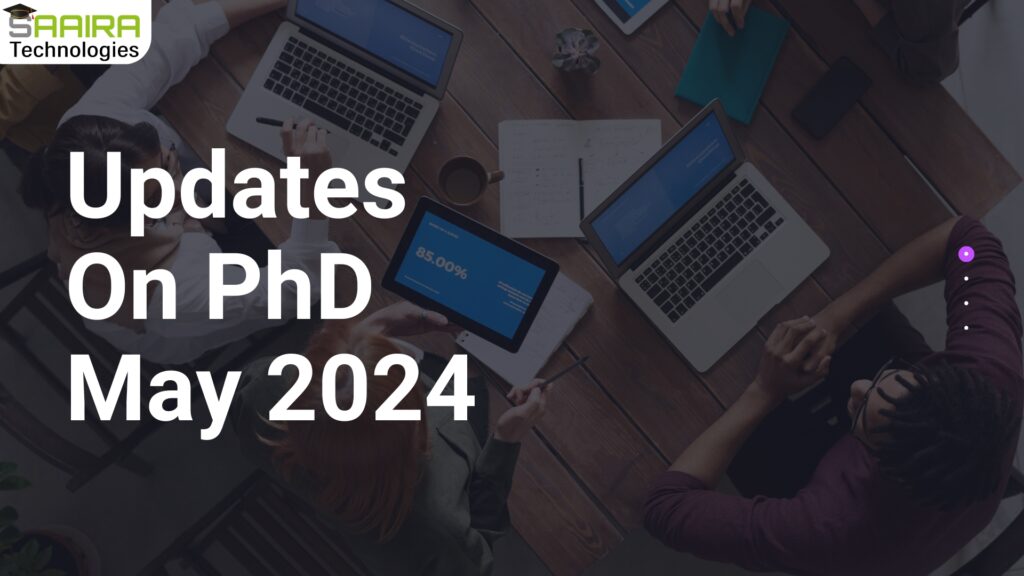PhD Programs in India

There has been a flurry of activity in the world of PhD programs in India recently, with changes aimed at streamlining admissions, boosting accessibility, and potentially altering the landscape of doctoral education. Here is a breakdown of the key updates:
NET Scores for PhD Admissions:
The University Grants Commission (UGC) has implemented a major shift. Starting from the 2024-25 academic year, the National Eligibility Test (NET) scores will be the primary criteria for PhD admissions [Times of India]. This replaces the individual entrance exams conducted by universities, aiming for a more standardized process.
Four-Year Undergrads Get a Shot:
Another big change is the eligibility for the NET itself. Previously requiring a Master’s degree, students with four-year undergraduate degrees can now appear for the NET and pursue PhD programs [The Indian Express]. This opens doors for aspirants who might not have opted for a Master’s degree traditionally.
Concerns and Considerations:
While these changes aim to make PhD programs more accessible, some experts raise concerns. The emphasis on NET scores might overshadow a candidate’s research aptitude and subject-specific knowledge. Additionally, ensuring quality mentorship and maintaining research rigor alongside wider access remains crucial [The Indian Express].
Other News Bites:
In other PhD-related news, some universities like JNU are adopting the NET for admissions, while others like DU are revising fees after student protests [The Indian Express, Times of India].
These developments signal a period of transition for PhD programs in India. While increased accessibility is a positive step, ensuring quality research and supporting students throughout their doctoral journeys will be paramount.
